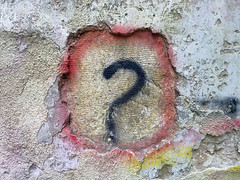| 8183561442 | Consciousness | the awareness or perception of something by a person. |  | 0 |
| 8183561449 | Circadian Rhythm | Circadian rhythms are physical, mental and behavioral changes that follow a roughly 24-hour cycle, responding primarily to light and darkness in an organism's environment. They are found in most living things, including animals, plants and many tiny microbes. The study of circadian rhythms is called chronobiology. |  | 1 |
| 8183561450 | Sleep Cycle | For our purposes, it suffices to say that one sleep cycle lasts an average of 90 minutes: 65 minutes of normal, or non-REM (rapid eye movement), sleep; 20 minutes of REM sleep (in which we dream); and a final 5 minutes of non-REM sleep. |  | 2 |
| 8183561451 | Sleep Stages | Usually sleepers pass through five stages: 1, 2, 3, 4 and REM (rapid eye movement) sleep. These stages progress cyclically from 1 through REM then begin again with stage 1. A complete sleep cycle takes an average of 90 to 110 minutes. |  | 3 |
| 8183561452 | REM sleep | Rapid eye movement sleep (REM sleep, REMS) is a unique phase of mammalian sleep characterized by random movement of the eyes, low muscle tone throughout the body, and the propensity of the sleeper to dream vividly. |  | 4 |
| 8183561453 | Insomnia | Persistent problems falling or staying asleep or both. |  | 5 |
| 8183561454 | Narcolepsy | A chronic sleep disorder that causes overwhelming daytime drowsiness. |  | 6 |
| 8183561455 | Sleep Apnea | A potentially serious sleep disorder in which breathing repeatedly stops and starts. |  | 7 |
| 8183561456 | Night Terrors | feelings of great fear experienced on suddenly waking in the night. |  | 8 |
| 8183561457 | Dreams | Dreams are successions of images, ideas, emotions, and sensations that occur usually involuntarily in the mind during certain stages of sleep. |  | 9 |
| 8183561458 | Freudian Dream Interpretation | the latent content, the symbolic meaning of the dream (i.e. the underlying wish). |  | 10 |
| 8183561459 | Activation-Synthesis Dream Theory | The activation-synthesis hypothesis, proposed by Harvard University psychiatrists John Allan Hobson and Robert McCarley, is a neurobiological theory of dreams first published in the American Journal of Psychiatry in December 1977. |  | 11 |
| 8183561460 | Information-processing dream theory | The information processing theory is a cognitive approach to understanding how the human mind transforms sensory information. The model assumes that information that comes from the environment is subject to mental processes beyond a simple stimulus-response pattern. " |  | 12 |
| 8183561461 | Hypnosis | the induction of a state of consciousness in which a person apparently loses the power of voluntary action and is highly responsive to suggestion or direction. Its use in therapy, typically to recover suppressed memories or to allow modification of behavior by suggestion, has been revived but is still controversial. |  | 13 |
| 8183561462 | Posthypnotic Suggestion | posthypnotic suggestion n. A suggestion made to a hypnotized person that specifies an action to be performed after awakening, often in response to a cue. |  | 14 |
| 8183561463 | Posthypnotic amnesia | Post-hypnotic amnesia is the inability in hypnotic subjects to recall events that took place while under hypnosis. |  | 15 |
| 8183561464 | Role Theory of Hypnosis | Three main theories of hypnosis exist: Role theory is when a person is not actually in an alternate state of consciousness, but rather is acting out the role of a hypnotized person. Altered-state theory occurs when a person is actually hypnotized and is therefore in a different, or altered, state of mind. |  | 16 |
| 8183561465 | Dissociation theory of hypnosis | It proposes that hypnotic phenomenon are produced through a dissociation within high level control systems. |  | 17 |
| 8183561466 | Psychoactive Drugs | A psychoactive drug, psychopharmaceutical, or psychotropic is a chemical substance that changes brain function and results in alterations in perception, mood, or consciousness. |  | 18 |
| 8183561467 | Agonists | An agonist is a chemical that binds to a receptor and activates the receptor to produce a biological response. |  | 19 |
| 8183561468 | Antagonists | A receptor antagonist is a type of receptor ligand or drug that blocks or dampens agonist-mediated responses |  | 20 |
| 8183561469 | Tolerance | Tolerance is a person's diminished response to a drug, which occurs when the drug is used repeatedly and the body adapts to the continued presence of the drug. Resistance refers to the ability of microorganisms or cancer cells to withstand the effects of a drug usually effective against them. |  | 21 |
| 8183561470 | Withdrawal | the action of withdrawing something. |  | 22 |
| 8183561471 | Stimulants | Stimulants are psychoactive drugs that induce temporary improvements in either mental or physical functions or both. Examples of these kinds of effects may include enhanced alertness, wakefulness, and locomotion, among others. |  | 23 |
| 8183561472 | Depressants | A depressant, or central depressant, is a drug that lowers neurotransmission levels, which is to depress or reduce arousal or stimulation, in various areas of the brain. |  | 24 |
| 8183561473 | Hallucinogens | A hallucinogen is a psychoactive agent which can cause hallucinations, perception anomalies, and other substantial subjective changes in thoughts, emotion, and consciousness. |  | 25 |
| 8183561474 | Opiates | Opiates are analgesic alkaloid compounds found naturally in the opium poppy plant Papaver somniferum. The psychoactive compounds found in the opium plant include morphine, codeine, and thebaine. |  | 26 |
| 8183578713 | Independent Variable | The experimental factor that is manipulated; the variable whose effect is being studied. | 27 | |
| 8183581492 | Dependent Variable | The measurable effect, outcome, or response in which the research is interested. | 28 | |
| 8183584107 | fMRI | technique that uses radio waves and magnetic fields to show brain function | 29 | |
| 8183597710 | operational definition | definition of a variable of interest that allows it to be directly measured and is provided for replication | 30 |
AP Psych Unit 5 Flashcards
Primary tabs
Need Help?
We hope your visit has been a productive one. If you're having any problems, or would like to give some feedback, we'd love to hear from you.
For general help, questions, and suggestions, try our dedicated support forums.
If you need to contact the Course-Notes.Org web experience team, please use our contact form.
Need Notes?
While we strive to provide the most comprehensive notes for as many high school textbooks as possible, there are certainly going to be some that we miss. Drop us a note and let us know which textbooks you need. Be sure to include which edition of the textbook you are using! If we see enough demand, we'll do whatever we can to get those notes up on the site for you!

